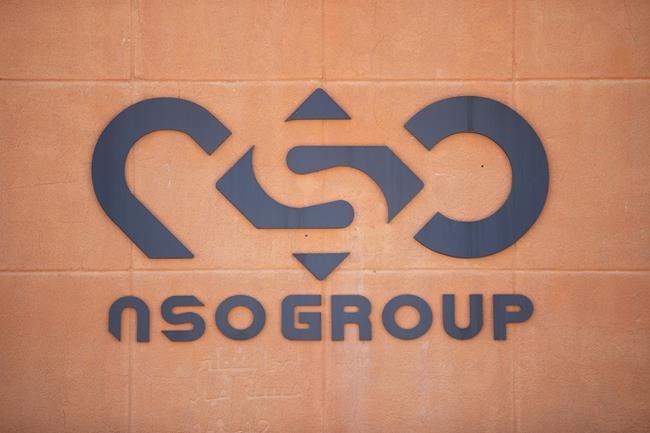RICHMOND, Va. (AP) — The Biden administration announced Wednesday it is putting new export limits on two Israeli hacker-for-hire companies — including the well-known spyware company NSO Group — saying their tools have been used to "conduct transnational repression.”
Based on leaked targeting data, findings by a global media consortium earlier this year provided evidence that the spyware from NSO Group was allegedly used to infiltrate devices belonging to a range of targets, including journalists, activists and political opponents in 50 countries.
The U.S. Commerce Department said NSO Group and the firm Candiru are being added to the “entity list,” which limits their access to U.S. components and technology by requiring government permission for exports.
The department said putting these companies on the entity list was part of the Biden administration's efforts to promote human rights in U.S. foreign policy.
“The United States is committed to aggressively using export controls to hold companies accountable that develop, traffic, or use technologies to conduct malicious activities that threaten the cybersecurity of members of civil society, dissidents, government officials, and organizations here and abroad," U.S. Secretary of Commerce Gina Raimondo said in a statement.
A prominent Russian firm, Positive Technologies, and the Singapore-based Computer Security Initiative Consultancy were also placed on the list for trafficking in “cyber tools used to gain unauthorized access” to IT systems, the department said. The Treasury Department put sanctions on Positive Technology, which has a broad international footprint and partnerships with such IT heavyweights as Microsoft and IBM, earlier this year.
Researchers say methods used by NSO Group, the world’s most infamous hacker-for-hire company, have grown so sophisticated that it can now infect targeted mobile phones without any user interaction.
In July, Microsoft said it had blocked tools developed by Candiru that were used to spy on more than 100 people around the world, including politicians, human rights activists, journalists, academics and political dissidents.
Alan Suderman, The Associated Press



